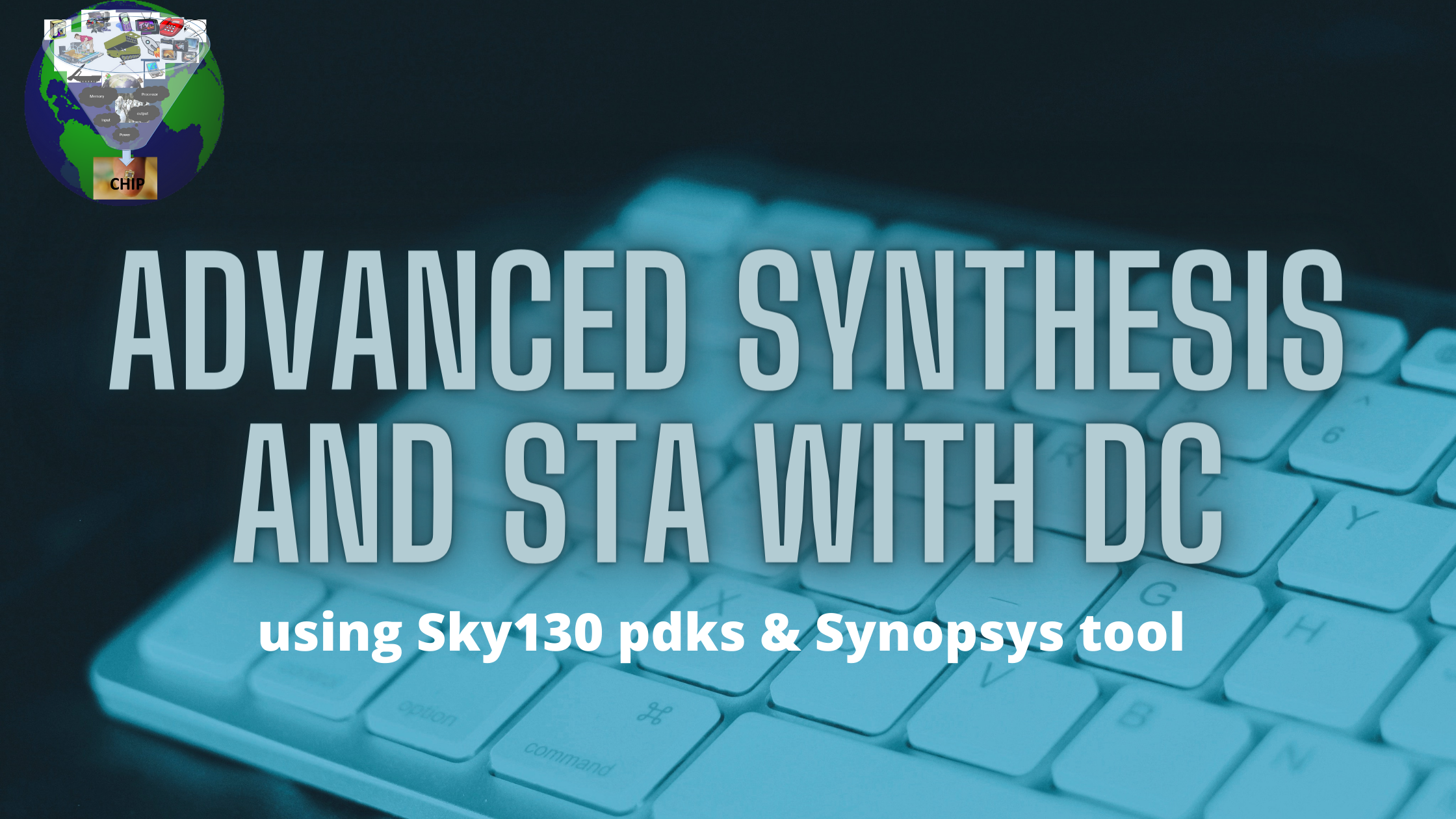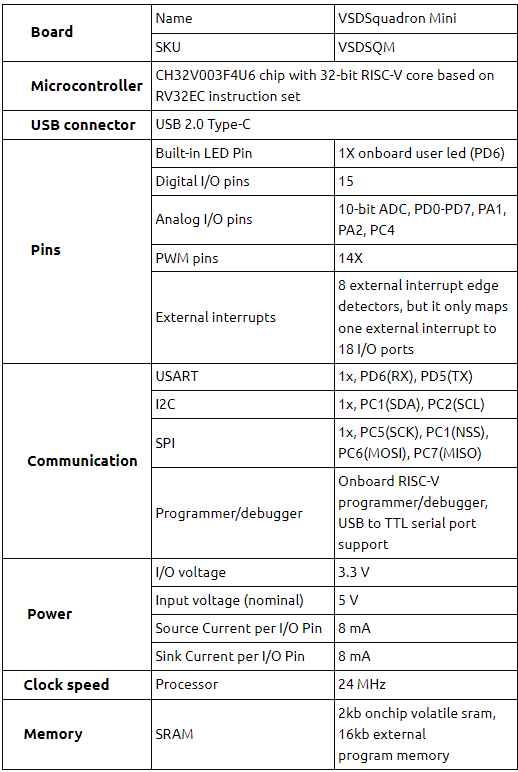
Good Design Compiler is an Advanced Synthesis Tool used by leading semiconductor companies across world.
Synthesis of logic circuits plays a crucial role in optimizing the logic and achieving the targeted performance, area and power goals of an IC.
Understanding the fundamentals of design are very important to give the correct inputs to the tool to achieve the best-in-class netlist quality.
This workshop explores the following aspects,
- Design fundamentals
- Setting up DC for synthesis
- Understanding STA
- Understanding and writing the Synopsys Design Constraints [SDC].
- Analyzing the quality of netlist synthesized.
SDCs [Synopsys Design Constraints] are standardized way of constraining the design across the EDA [Electronic Design Automation] tools. Understanding the SDCs helps to work across the EDA implementation tools.
Day 1 :
- Introduction to Logic Synthesis
- Introduction to Design Compiler
- what is Logic Synthesis ,
- What is netlist , libraries ,
- TCL Quick refresher
- What is DC and how to launch DC ,
- What are the inputs needed to load the design in DC ,
- Loading a basic design in DC ,
- Writing out a basic NL and DDC
Day 2:
-
Basics of STA ,
- Delays
- Timing Arcs
- Constraining the Design
- What is STA , setup , hold quick recap .
- What are constraints
- Constraining the Reg2Reg , Reg2IO , IO2Reg Paths
- Input transition and OutputLoad and its effects on IO delays.
Day 3:
- Advanced Constraints
- Clock Skew and Clock Jitter, its modelling in DC
- Writing SDCs [Synopsys Design Constraints]
- Creating Clocks
- Querying Cells
- Specifying IO Delays
- Specifying Clock Waveforms
- Generated Clocks
- Multi Clock Design
- False Paths
Day 4:
- Optimizations in Synthesis
- Combinational Logic Optimization
- Boolean Reduction
- Constant Propagation
- Synthesis Directives
- Synopsys full_case
- Synopsys parallel_case
- Combinational Logic Optimization
- Sequential Logic Optimization
- Sequential Constant
- Retiming / Pipelining
Day5 :
-
Checking Netlist Quality and Generating Reports
- Generating Timing Reports
- max_paths
- nworst
- Boundary Optimizations
- check_design
- check_timing
- HFN (High Fanout Nets)
- Path Groups : Prioritizing Optimizations
- PVT Effects , modelling them in DC
- Design Compiler
- Iverilog
- Gtkwave
- Virtual Coach platform with expert instructor guidance
- Cloud-based dedicated Virtual Machine to perform Design labs
- Intelligent Assessment Technology (IAT) and Project allocation
- 24 hours Lab access for 5 days and Instructor assistance on demand
Kunal Ghosh, co-founder of VLSI System Design (VSD) Corp. Pvt. Ltd., Kunal pioneers in the field of online open-source EDA (qflow & openroad)/open-source hardware (specially RISC-V) design and learning. Currently, Kunal owns around 32 high-quality VLSI online courses in and around open-source EDA/hardware, which is being consumed by around 28700+ students around 141 countries. Apart from trainings, Kunal has also worked with IIT Madras and IIT Guwahati on open-source activities and design projects. Currently, Kunal and his team are working on developing high quality open-source Analog/Digital IP’s which would be first one’s in the field of open-source hardware design. Prior to VSD, Kunal has worked with Qualcomm and Cadence, in field of SoC design. Kunal has done his Masters at IIT Bombay in field of VLSI & Nano-electronics, with specialisation in Sub-100nm Electron Beam LithographyOptimisation techniques.
Teaching Assistant Profile:
Shon Taware has completed his post-graduate study in Embedded System and VLSI Design. He has worked on multiple digital RTL design and physical design projects. He has a good understanding of CMOS technology, digital electronics, RTL Design, Synthesis and Static Timing Analysis. He is currently working on a RISC-V project focusing on complete RTL design and open-source RTL to GDS flow.
What is the registration fees?
The Registration fees is $149, which includes 5 Day access to Cloud platform, Video lectures, and Lab Tutorials, QnA platform where TA will solve all the queries immediately and 1 Hour LIVE Interactive Session everyday around 8 PM IST for 6 days (One day before workshop starts to give access labs and platform).
Can I join at my convenient time?
Yes. The workshop is conducted on VSD-IAT cloud platform, which allows you to login at your convenient time for the entire duration of workshop.
What are the prerequisites for taking the course ?
Basic knowledge of Digital design is required. Familiarity with Linux OS and Verilog HDL will be an add-on.
I am a 2nd year engineering student. Can I join this workshop?
One of our last workshop, we had students as young as 8th Grade. So as long as you are looking forward to learning something new and making a bright career in the field of VLSI, you are welcome. This workshop, is kept at a very very basic level, where we make sure basics are covered first. Look at curriculum in above registration link.
Can experienced system designers join for refreshing concepts?
We would suggest you to refrain from joining this workshop, as it's especially designed only for freshers looking to start in the field of VLSI. But, if you are looking to share your RTL Design, Synthesis and STA experience with students, then you are more than welcome to join.
Can I access content after Workshop is finished ?
You will be given lifetime access to all lab files after the workshop. Access to videos and VSD-IAT platform will terminate on last day of Workshop.
Do I need to install any software or tools to do labs?
No. Labs will be done on VSD-IAT cloud platform. You will be given access to a Linux Terminal, which has all necessary tools installed. Post workshop, we will provide scripts to install all tools on your laptops so you can do all experiments on your laptop and revise.
